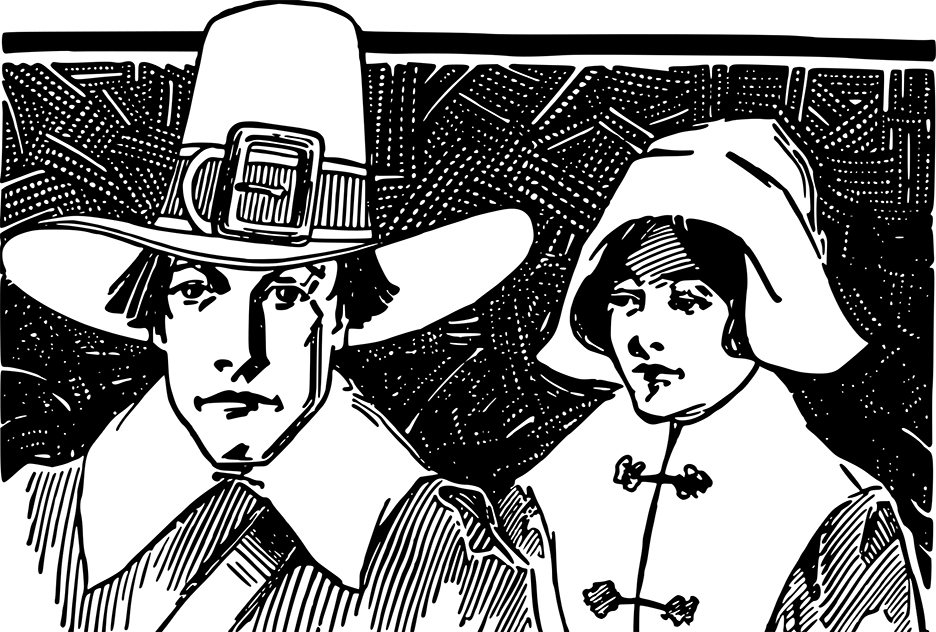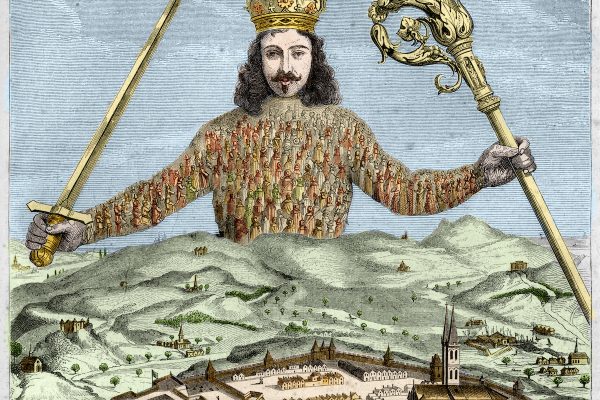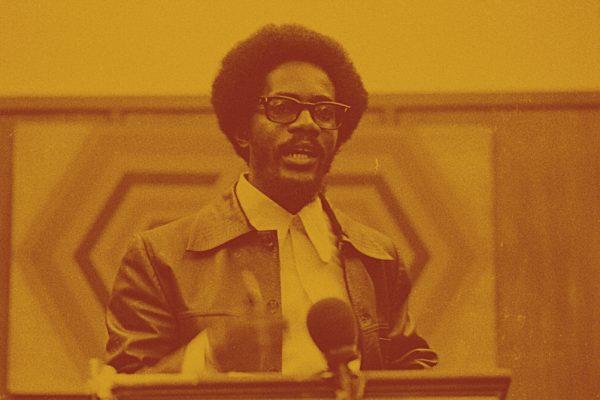If the right is to be believed, there is now not only a war on Christmas, but also a war on Thanksgiving. In one of the stranger developments of 2020, William Bradford, Miles Standish, and the rest of the Plymouth Colony have been called to fight back against the 1619 Project, the New York Times’ Pulitzer Prize–winning dossier. The 1619 Project proposes that the arrival of enslaved Africans in the British colony of Virginia in 1619 is the appropriate place to begin telling the story of the United States, and that slavery—and other forms of racial exploitation—were always central to the American political project. When the project debuted in 2019, many critics—from conservative ideologues to old-school historians—came unglued.
In 2020, how one recognizes Thanksgiving is not only politically fraught but dangerous: the weaponization of Thanksgiving now may be a matter of life and death.
In a strange coda to this, last Wednesday, November 18, Arkansas senator Tom Cotton took to the Senate floor to lambaste an article in the New York Times food section by Brett Anderson about Indigenous responses to Thanksgiving, wondering if “the politically correct editors of the debunked [sic] 1619 Project are now responsible for pumpkin pie recipes at the Times as well” (Anderson’s article contained no pie recipe, for the record). This may sound improvisational, but Cotton is far from the only public figure to have dragooned Thanksgiving into this year’s culture wars. A contributing factor is certainly that 2020 marks the 400th anniversary of the Pilgrims’ arrival in Plymouth, Massachusetts, just as 2019 was the 400th anniversary of the arrival of enslaved Africans in Virginia.
In his just-published 1620: A Response to the 1619 Project, Peter W. Wood, president of the neoconservative propaganda group National Association of Scholars, enlists the story of the Pilgrims to claim that the 1620 Mayflower Compact more accurately reflects our national origin than does the arrival of enslaved Africans a year earlier. Wood’s thesis attracted the attention of editors at the New York Post—the chance to accuse their competitors of historiographic conspiracy may have proved too tempting—and on November 7 they ran an op-ed by Wood that hit the high points of his book. Two weeks later, the Post again gave Wood space, this time for a story that ran as news. In it, Wood reports on the Mayflower descendants who have written to thank him for lifting their ancestors back into the firmament.
On the one hand, there is nothing new about claiming Plymouth Colony as the genesis of the nation. In his 1863 Thanksgiving proclamation, Abraham Lincoln hailed the Thanksgiving celebration as something to unite Americans, even as the nation tore itself apart in a civil war. Among the things that Lincoln was thankful for was that “the axe has enlarged the boundaries of our settlements.” In the post–Civil War era, Pilgrim statuary and commemoration became a way to promulgate a coherent narrative of national origins. In the early twentieth century, as the country recovered from World War I, Perry Miller, the founder of American Studies and “great master of Puritan theology,” explained his choice to focus on New England, rather than earlier settlements in Virginia, because he needed a “coherence from which I could coherently begin.” And to an extent, it is precisely such “coherence” that forms the basis of Wood’s case for 1620 as the real starting point of what he calls “America.”
On the other hand, a long history of doing so does not make it any less strange that we are meant to see, in a small band of English religious extremists, a source of unity and national character. Being claimed as a “Forgotten Founder” for a secular democratic state—as Francis Bremer does of John Winthrop—would certainly have surprised the Bay Colony governor, who toiled to erect a Bible Commonwealth that would show the way for his English brethren. Likewise, though Thomas Jefferson cited Rhode Island’s founder, radical Puritan theologian Roger Williams, as inspiration for the separation of church and state, Williams certainly had in mind the creation of a very different kind of society than did Jefferson.
In fact, this is an old tug of war. What makes the stakes different this time, though, is that in 2020, how one recognizes Thanksgiving is not only politically fraught but dangerous: the weaponization of Thanksgiving now may be a matter of life and death. This 1620 rejoinder to the 1619 Project will certainly cause some to feel that gathering for Thanksgiving is a heroic act of resistance to the looming forces of political correctness. Indeed, this past Saturday, Senator Ted Cruz demonstrated a truly reckless disregard for the lives of his constituents when he tweeted a “COME AND TAKE IT” Second Amendment meme in which the usual gun had been replaced with a turkey.
For those espousing a war on Thanksgiving, it is crucial that you feel the events of 1620 are more important than the events of 1619.
The fear by some on the Christian right that there is a war on Christmas—manifest in everything from holiday greetings to Starbucks cups—is a hyperbolic response to Americans’ increasing religious diversity. In the absence of a true hegemony, the demand is instead for a kind of affective consensus: I can’t enjoy the holiday unless everyone feels the same way about it that I do. In a similar vein, the ostensible war on Thanksgiving—especially in its 1619 vs. 1620 manifestation—is likewise more about feelings than it is about facts. The Pilgrims landed at Plymouth and signed the Mayflower Compact in 1620—this is true. Enslaved Africans were landed on the coast of Virginia in 1619—this is also true. But for those espousing a war on Thanksgiving, it is crucial that you feel the events of 1620 are more important than the events of 1619.
There would be enough to untangle if the 1619 vs. 1620 battle were simply a question of one side shouting “Slavery!” and the other side shouting “Democracy!” There is the significant further complication that the events of both 1619 and 1620 unfolded against a backdrop of Indigenous death and displacement. As Drew Lopenzina points out in his essay in A History of American Puritan Literature (2020), the “howling wilderness inscribed on the page of history was but one more European import.” The empty New England wilderness was an idea the Pilgrims and Puritans brought with them, and superimposed over a robust network of Indigenous villages, towns, and trails.
Lopenzina’s comment reminds us that there are rejoinders to Thanksgiving that warrant far more time and attention than the contention of Pilgrim descendants that their ancestors were, actually, good. Since 1970 the Wampanoag and other Indigenous people have gathered in Plymouth on the same day as Thanksgiving to observe a National Day of Mourning. If it is ever possible to realize Lincoln’s dream that a day of giving thanks will unite the disparate inhabitants of the United States, it would have to begin with a recognition that our history metes out reasons for gratitude and reasons for grief to its inhabitants in unequal measures.








